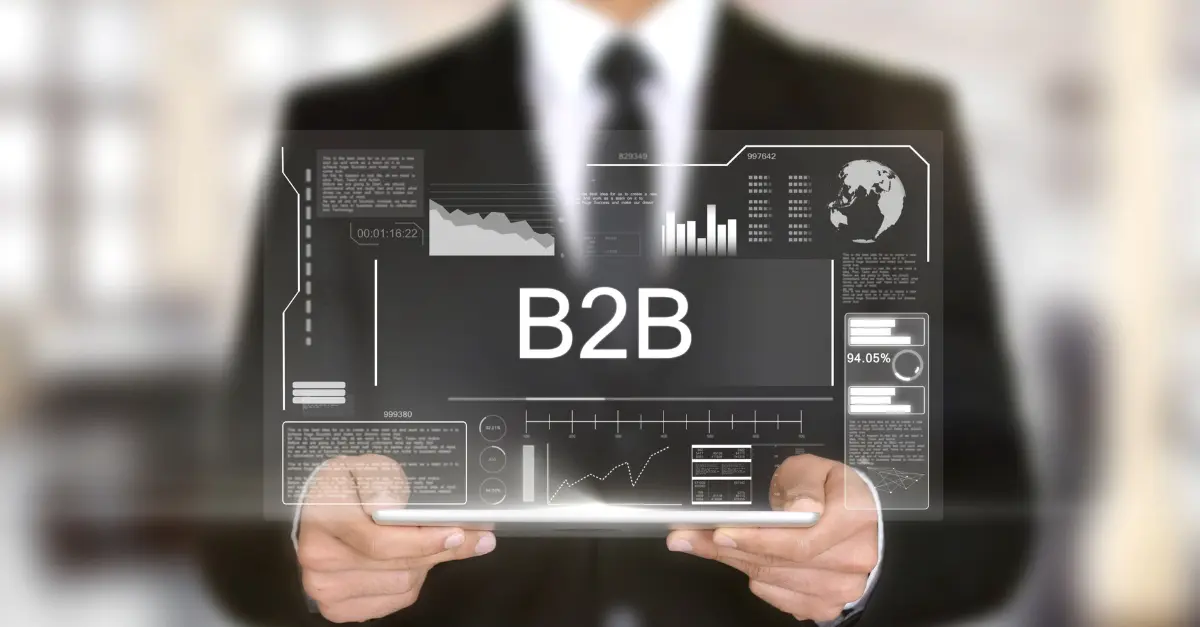
Shortly after the launch of ChatGPT, I promptly received an unsolicited email from a company promoting AI-generated blog posts, indicating that their content may have been produced using the same tool.
While the timeframe might not have been exactly 10 minutes, it certainly felt like it. Since then, my inbox has been flooded with numerous offers from various companies touting different AI-generated solutions.
However, the true transformative impact of AI on the lives of B2B marketers lies not in content creation but in execution. Although the ability to generate emails and content more efficiently using AI holds promise, it has yet to bring significant positive change.
To truly harness the potential of AI, we must shift our focus towards gaining deeper insights into our audience, particularly their preferences. This is where the power of AI lies in delivering personalized and unique experiences at scale.
The pursuit of creating content at a faster pace alone will not lead to improved performance. In fact, a 2019 Gartner research revealed that up to 89% of decision-makers considered the content they encountered during the buying process to be of high quality.
Buyers are reaching a point of cognitive saturation, where their ability to consume more information is limited. Simply flooding them with more content does not result in increased consumption or understanding. This saturation point was evident four years ago, and one can only imagine how buyers feel now.
This realization prompted the emergence of the "sense-making" seller, someone who possesses the crucial ability to connect the right information with the right person at the right time. They excel at filtering out unnecessary information and providing decision-makers with precisely what they need to take action.
While it's relatively easier for a human to listen and understand buyers' needs during the sales process, applying the same approach at the top of the marketing funnel with various assets poses a challenge. This is where the true potential of AI in B2B comes into play.
The pursuit of creating content at a faster pace alone will not lead to improved performance. In fact, a 2019 Gartner research revealed that up to 89% of decision-makers considered the content they encountered during the buying process to be of high quality.
Buyers are reaching a point of cognitive saturation, where their ability to consume more information is limited. Simply flooding them with more content does not result in increased consumption or understanding. This saturation point was evident four years ago, and one can only imagine how buyers feel now.
This realization prompted the emergence of the "sense-making" seller, someone who possesses the crucial ability to connect the right information with the right person at the right time. They excel at filtering out unnecessary information and providing decision-makers with precisely what they need to take action.
While it's relatively easier for a human to listen and understand buyers' needs during the sales process, applying the same approach at the top of the marketing funnel with various assets poses a challenge. This is where the true potential of AI in B2B comes into play.
Let me share an example that illustrates the power of understanding your audience. A professional services firm was hosting webinars with impressive attendance, but they struggled to convert those attendees into leads. Upon analyzing their audience, they made a fascinating discovery: more than half of their attendees had a dominant personality type.
Their webinars were packed with data and research, primarily presented through white papers. However, they realized that their audience, consisting mostly of strategists and consultants, preferred lighter content that could be easily shared and understood without extensive explanations. Imagine engaging infographics and captivating animated videos.
Once they shifted their approach to provide tailored follow-up content aligned with their audience's preferences, lead conversion rates after webinars soared by 35%. They recognized that these attendees, characterized as "influencers," weren't the direct leads themselves but played a crucial role in pointing the organization towards potential opportunities.
By tracking content sharing instead of merely focusing on downloads, the firm followed the content's journey to reach its intended audience. They realized that producing more content wasn't the answer. What made a difference was delivering personalized content that resonated with how the audience wanted to utilize it. In this case, the "sense-maker" was the influencer attendee who effectively directed the relevant information to the right individuals at the right time.
AI tools played a pivotal role in uncovering insights into audience behaviours and motivations. Armed with a deeper understanding of their audience, the firm witnessed a significant improvement in the performance of their outbound efforts.
This example emphasizes the importance of prioritizing audience insight over churning out more content. Buyers have already communicated their desires and needs in the past, so focusing on tailored solutions that provide valuable buyer insights will ultimately lead to better performance.
AI tools analyze audience behavior patterns, preferences, and interactions to provide deeper insights into what content resonates with different segments, enabling more effective targeting and personalization.
AI helps deliver personalized content at scale by analyzing user behavior and preferences, ensuring the right content reaches the right audience at the right time.
By providing insights into audience preferences and behavior, AI helps create more targeted and relevant content, leading to higher engagement and conversion rates.
The sense-making approach involves connecting the right information with the right person at the right time, filtering out unnecessary content and focusing on what drives action.
AI analyzes content performance metrics and audience engagement to identify what works best, helping marketers optimize their content strategy for better results.
AI-powered insights help understand audience preferences, improve content relevance, enhance personalization, and drive better marketing performance through data-driven decisions.
Your email address will not be published. Required fields are marked *
Loading questions...
